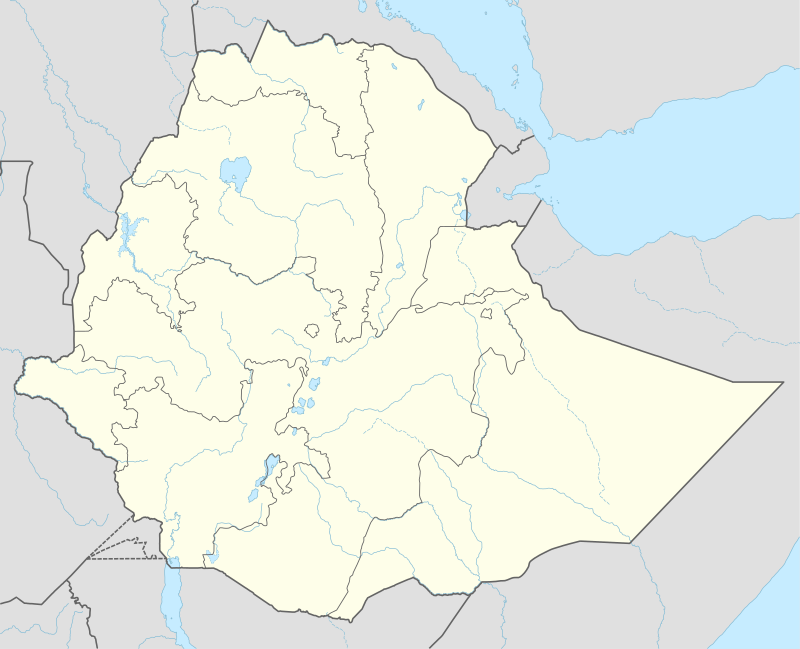Arjo
Arjo (Amharic: አርጆ, Oromo: Arjjoo, also spelled Argio) is a town in Ethiopia, located in Jimma Arjo woreda, in the Misraq Welega Zone of the Oromo Region. President Mulatu Teshome was born in Arjo.[2] Dr. Haile Fida, one of the pioneers in developing modern Afaan Oromo writing system (Qubee Afaan Oromo), was born in Arjo and attended his early education here.
Arjo አርጆ (in Amharic) Arjjoo (in Oromo) | |
|---|---|
Village | |
 Arjo Location in Ethiopia | |
| Coordinates: 8°49′N 36°28′E | |
| Country | Ethiopia |
| Region | Oromia |
| Zone | Misraq Welega |
| Elevation | 2,566 m (8,419 ft) |
| Population (2006) | |
| • Total | under 1,000 |
| Time zone | UTC+3 (EAT) |
| Climate | Aw |
Overview
Serving in the town from 1997 to 1997, Kate Collins Faber, a Peace Corps volunteer, described it as appearing to be "a fairly large village with clusters of tin-roofed houses lining the gravel road," but that in actuality the town was very small.[3]
In 2001 a pesticide dumpsite was said to exist in the town, containing DDT, Malathion, pirimiphos-methyl, and fenitrothion.[4] It was established in the early 1850s by a group of Macaa Oromo. Arjo was named by the name of its founder and the first Abba Gadaa governor. Odaa Arjo and Caffee Arjo are located at the south outskirt of the town.
The Comboni Missionary Sisters operate a kindergarten in the town.[5]
References
- "Ethiopia – Mountains – Arjo to Assale". Index Mundi. Retrieved 7 October 2013.
- Wei, Wang (7 October 2013). "Ethiopia Elects New President". Xinhua. Retrieved 7 October 2013.
- Collins Faber, Kate. "The Pink Eraser". Eritrea & Ethiopia RPCVs. Retrieved 7 October 2013.
- "Obsolete pesticides threaten communities in Ethiopia". Food and Agriculture Organization News Archive. 9 May 2001. Retrieved 7 October 2013.
- "Comboni Missionary Sisters". Ethiopian Catholic Church. Archived from the original on 2 February 2014. Retrieved 7 October 2013.